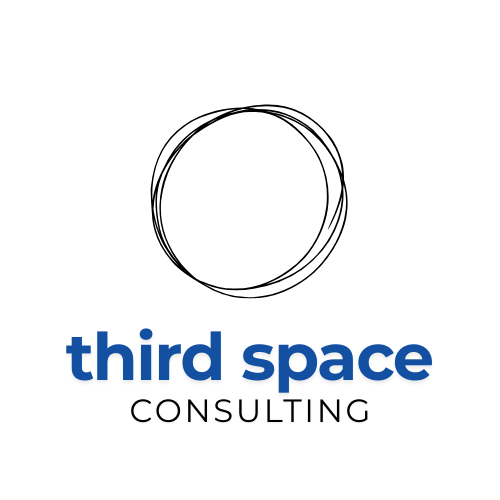Why the “third space” is the way.
It’s two days after the presidential election, and like many others, I feel a bit shell-shocked. And yet, I know there are others who feel content and relieved because their candidate won. While many friends and colleagues are angry at various groups of voters, the candidates themselves, my focus is elsewhere—not on blame, but on understanding. I want to understand why one candidate won and another lost, and, more broadly, why people make the choices they do. As a clinical therapist and social worker, I’m fascinated by what drives people’s motivation and behaviors, by the deeper systems we all interact within. I have a deep desire to understand people, not to judge them.
It’s no easy task, but it feels like the only path forward. I work against the human instinct to blame or name-call, focusing instead on respecting people’s choices and exploring what I can do, as one individual, to bridge this ever-growing divide. I believe it’s possible because I’ve seen how empathy, deep listening, and honest engagement can transform pain and conflict. My clinical experience prepared me for that kind of connection, and my life prepared me for the challenges of navigating complexity and contradiction.
My mother grew up outside of Saigon in the Vietnamese countryside. She was very poor and spent years in a Catholic orphanage with her older sister. She didn’t have consistent access to school, reaching only the eighth grade before family responsibilities took priority. At 18, she met my father, an American soldier stationed in Vietnam during the war. He came from an entirely different life—a small town in Wisconsin with a population of about 700, where everyone seemed to be cousins, a place far removed from the hardships my mother knew.
When Saigon fell to the North in 1975, my parents fled Vietnam. My mother left her family, her country, everything familiar to her, on one chaotic day in April. She found herself in a new world in Madison, Wisconsin, with no one she knew apart from my father’s family, unable to speak the language or navigate the culture.
I was born a little over a year later, the first daughter of an immigrant mother and a working-class father. Growing up biracial with two vastly different cultural identities was often confusing for me. I couldn’t understand why my mom was treated differently, why people sometimes reacted to her as if she were somehow “less than.” Later, I realized it was her accent, her appearance, the food she ate—those markers that made her seem foreign to others.
My parents didn’t always agree on how to raise me. My dad, a proud worker, felt success meant getting a solid job, like working at the Oscar Mayer factory. He didn’t see college as necessary. My mom, on the other hand, pushed education with a fierce urgency. She’d tell me stories of digging through neighbors’ garbage to find books to read, skipping across hot cement because she couldn’t afford shoes. She didn’t know how to guide me to college, but her sacrifices were etched in my memory and became a source of resilience and purpose that carried me through all of the difficulties and setbacks I encountered navigating academia.
Even in their politics, my parents were divided—my dad more conservative, my mom more liberal. The contrasts were constant, and yet somehow, it all worked. Navigating these differences taught me that the world isn’t split into clean divides. Republican/Democrat, Asian/White, educated/not educated—my experience growing up showed me that life is far richer than these binaries. I began to see that there’s a space beyond them all, a place where identities, beliefs, and values intersect. That space is what I call the “third space”—where the dualities of identity and perspective can coexist, where understanding triumphs over judgment.
This worldview is foundational to my work. It’s what helps me to truly listen, to slow down, and to seek understanding over assumptions. I believe in meeting people where they’re at—not with intellectualized language or distant academic jargon, but with an openness to our shared human experience. I believe that when we approach each other this way, we’re able to truly see and hear one another. This is how we find common ground, our shared values, and our shared humanity.
The third space is the only way I know to move forward. It’s how I hope to help others see beyond divides and work toward a healthier, more connected world.
